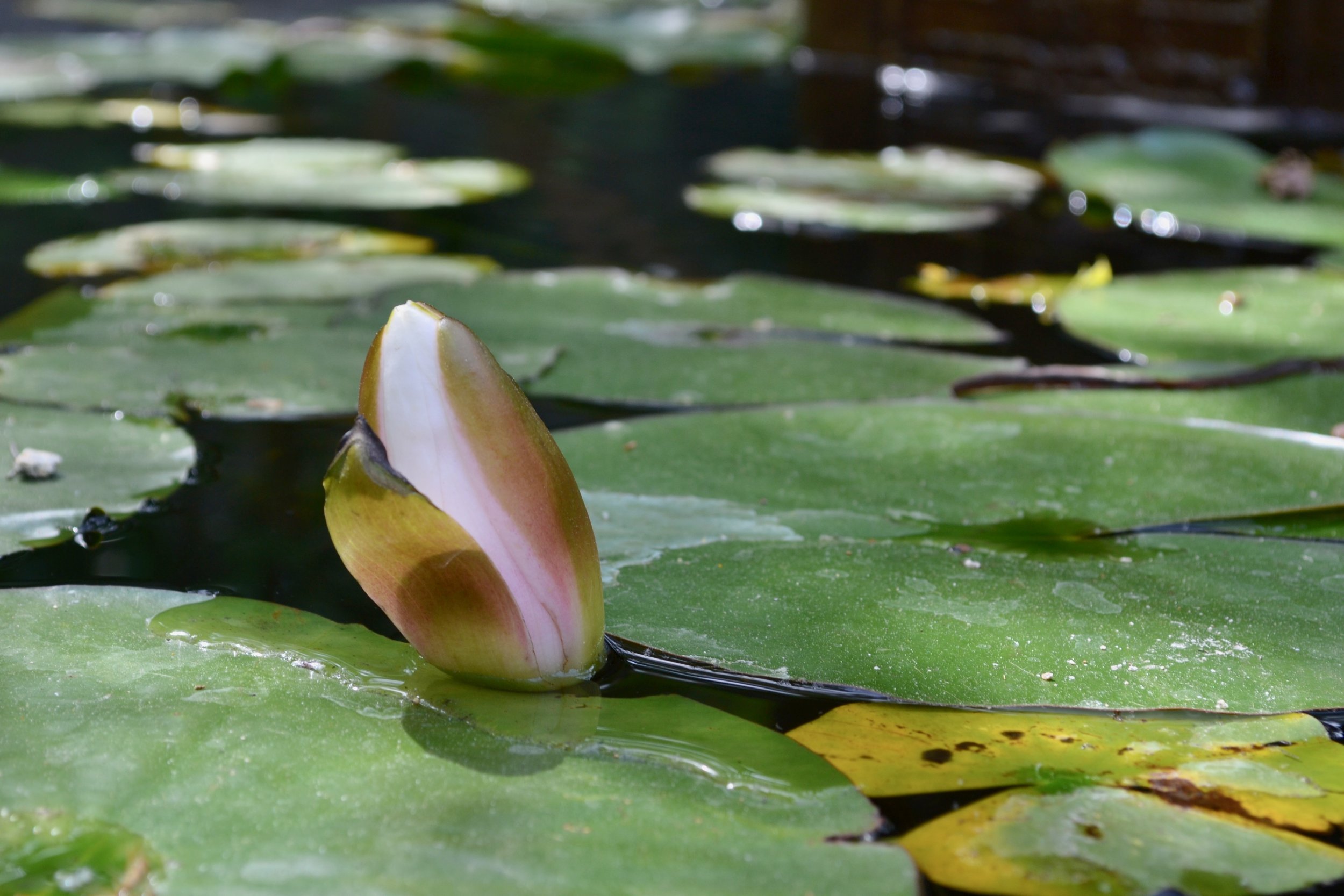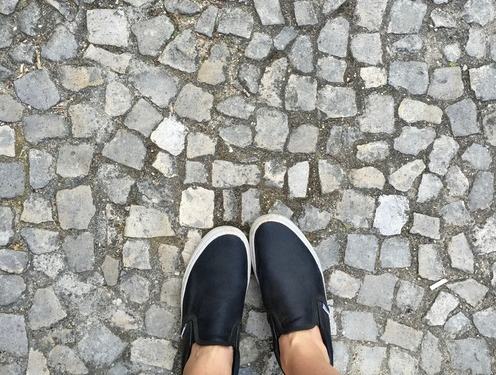Blog
Burnout + your "Energy Net Worth" (Your Engine, Part II)
I’m starting this year by sharing two core concepts that I find most helpful to my clients — our compass + our engine. We spent a few weeks on compasses (1, 2, 3), and now we’re talking about engines (here’s last week’s intro).
…
One common engine problem is simply not having any fuel in the tank.
On one hand, most of us know that we need fuel when it comes to non-metaphorical engines. We’d certainly never drive a car with an empty tank on the freeway.
But a lot of us our driving ourselves on the freeway with empty tanks.
Today I want to introduce a concept I developed, that I often share with clients who are chronically driving on empty: the idea of Energy Net Worth.
The idea behind “Energy Net Worth” is that your energy level functions a lot like money — it’s not just about what you “earn” and “spend” today; it’s also about what you earnt and spent in the past.
If we have a positive Energy Net Worth, we have a build-up of extra energy reserves, for whatever life throws at us. Have you ever had something energetically “expensive” happen to you, but you emerged basically okay? You probably had plenty of energy in reserve, so it wasn’t a big deal to “spend” some.
(This happened to me, when my son first started having seizures and he had to spend a few days in the hospital. Scary, exhausting, but I had a pretty solid amount of energy in the bank. I was okay afterwards.)
By contrast, have you ever had an experience that wasn’t “objectively” tiring, but… totally exhausted you?
Maybe you had to do something at work that, on a normal day, would be okay — or even easy! — but on this day, just seemed impossible. At that point, your Energy Net Worth was probably close to zero… or you may have been already in “Energy Debt.”
The point here is not what happens to your energy in a given day. We all have days that are energetically expensive, for one reason or another. The point is overall.
*Overall,* Do you have enough reserves for what you need? Or are you perpetually exhausted?
…
If you laughed at the concept of even having energy reserves – if you thought “well, that’s impossible” or “that sounds like a pipe dream, Katie” – you’re definitely not alone.
Most of my clients are, financially, quite responsible. They have 401k’s, they are thoughtful about investment strategies or budgeting. They might have debt, but it is thoughtfully chosen – a carefully-researched decision to buy a house, for example.
On the other hand, many, many of my clients are basically living paycheck-to-paycheck, with maxed out credit cards, when it comes to their energy.
And this has huge – and I mean huge — implications across their lives.
(And Energy Debt, like financial debt, can be complex to pay off. Because when you’re truly in energy debt, there is typically interest. More on that here.)
…
For today, I want to invite you to reflect:
How is your Energy Net Worth? Is it positive? Neutral? Negative?
Do you give your Energy Net Worth as much attention, care, and long-term planning as you give your Financial Net Worth? Why or why not? Do you like that prioritization?
As always, I’m rooting for you in the week ahead. You’ve got this.
Katie
p.s. Would you like to work with me in 2024? Most of my clients improve their Energy Net Worth, while we simultaneously work on everything else that matters to them (improving their focus, revitalizing their marriages, re-starting their exercise habits, making that big career move, and more.)
I’m offering 4-month and 6-month coaching packages. My past client, Julie, recently said: “Working with Katie was one of the best decisions I've made in the past few years.”
Learn more about working with me 1:1 here.
Want to receive essays like this every Sunday morning? Sign up for my newsletter!
Why recovering from burnout can be so hard
Severe burnout can be a difficult recovery process.
Here’s something I’ve noticed, time and again, about recovering from a completely empty tank:
When we finally start to refill our tanks, there is often an extended period of time when we are recovering… but we don’t feel better.
In other words:
We finally have a bit more time.
We’re finally resting.
We’re finally doing some useful self-care practices.
… And we don’t feel better.
As you can imagine, this is a tough time. It’s when I’ve started to feel quite anxious. It’s when my coaching clients sometimes start to panic:
Will I ever feel better? I’m doing all the right things!
Am I doomed to feel exhausted… forever?
This phase can last weeks. Occasionally — if the burnout was extreme — for months.
…
So, how do you recover from burnout?
All I can say to you is: keep going.
You will start to feel better, perhaps quite suddenly. When this happens, you will realize that your tank was slowly refilling before, but you were so tired that you couldn’t feel it. I’ve seen it happen over and over with my clients, and with myself.
(Of course, this is dependent on you actually taking steps to refill your tank. If you’re just doing the same ol’ things that burned you out to begin with, I can’t promise you’ll suddenly feel better one day.)
…
Using a life coach can be really beneficial for when you’re feeling like you need some help.
I know that when we are lost in the wilderness of exhaustion and burnout, everything can feel overwhelming.
So let me be a steadying guide: Keep going. It’s working.
Keep going, my friend.
Katie
p.s. If you’re stuck doing the same things and can’t see a way out of burnout and an empty tank, I’d recommend working with me 1:1.
The journey can seem completely overwhelming on your own — but with the help of an experienced coach who can suggest personalized, iterative steps — it’s a completely different, and much more doable process.
Learn more about working with me here.
Sign up for my newsletter to get helpful + encouraging essays like this every Sunday morning. It’s free!
One way to feel less tired
Here’s a radical question for all of us:
Do you need to feel more bored?
So many of us are chronically busy or stressed. I started to notice that even though my life isn’t crazy-busy — which I’m grateful for — I didn’t have that open, relaxed, spacious feeling as much as I’d like. It often felt like my life was going by fast, and I wondered if that was what I really wanted.
I’ve started to wonder whether boredom is part of the solution. For me, boredom feels like the opposite of busyness. When you’re busy, your life is too full. When you’re bored, your life is too empty.
And do we need that feeling of “too empty” regularly, to balance out the frequent times when our lives feel “too full”?
Like any good life coach, I experimented on myself.
One recent Saturday, my husband was gone for the afternoon and I had nothing to do. I could feel myself being pulled to watch episodes of Sex and the City (which I’m watching for the first time; please send your opinions). But I’d also been feeling a bit overstimulated recently — and have been curious about how I relate to technology — so I decided I would try to stay off screens all afternoon.
I’ll read, I thought. That’s a pleasant way to pass the time. But I’d been reading a lot lately and didn’t feel like reading more.
I could feel myself starting to worry: Wait, what am I going to do all afternoon? That’s a lot of time!
I genuinely didn’t know what I was going to do all afternoon. I felt bored. But I also noticed that within the boredom was some anxiety. I wasn’t used to this feeling of under-stimulation and feelings were coming up.
And yet, after lying on the couch and worrying that this afternoon would kill me with boredom and last forever, I did eventually find some things to do:
I journaled about some things that were on my mind.
I made a daydreaming list of all the furniture I’d get to decorate my house if I had an unlimited budget.
I paged through cookbooks, looking at pictures and thinking about recipes to make.
I cut blooms off our rosebushes, filling five tiny jars with roses and putting them all around my home.
I sat on my front stoop and looked out at the street, watching people walk by with their dogs.
Once a few hours had passed, I realized the initial anxiety was long gone. In fact, I felt more relaxed than I had in a long time.
Even more surprisingly, my life felt slow. While I don’t have a crazy stressful life, my life doesn’t usually feel slow. It felt like I lived in a small town on a 1950s sitcom.
Truthfully, I didn’t have “fun” in the way I would have had fun binge-watching episodes of Sex and the City. It was an under-stimulating and sometimes boring afternoon, even though I eventually found some pleasant things to do. But in other ways, I felt extremely rejuvenated from just a couple of hours. I literally thought to myself, it feels like I’ve been to a spa.
I can’t remember ever thinking to myself that a random weekend afternoon felt like a trip to a spa.
…
So I’d like to ask you, again: Do you need to be more bored?
I bet that most people reading this email can relate to life feeling too full. But how often, for hours at a time, has your life felt too empty? Would you be willing to explore it?
If so, let me know how it goes!
I’m rooting for you. You’ve got this!
Katie
If this essay resonated with you, you'll love my newsletter. Sign up for free + get new ideas every Sunday!



